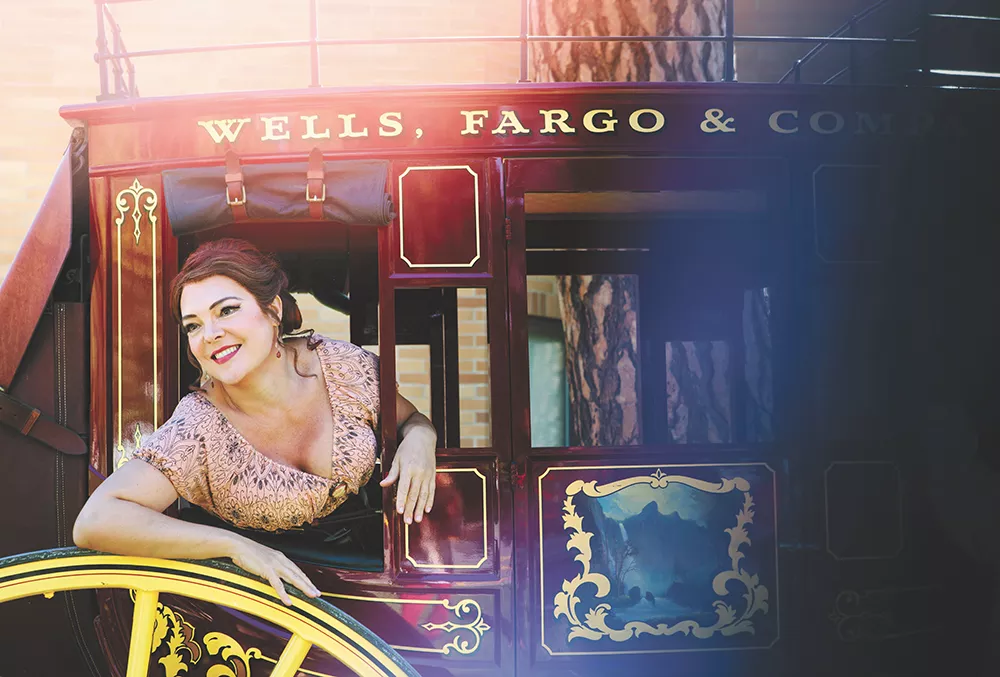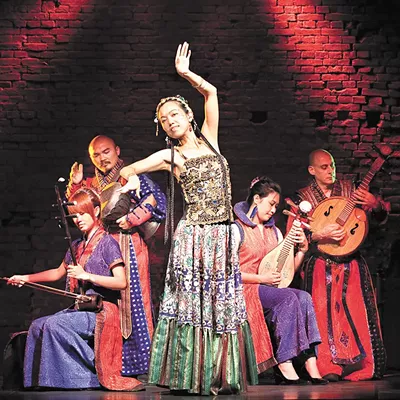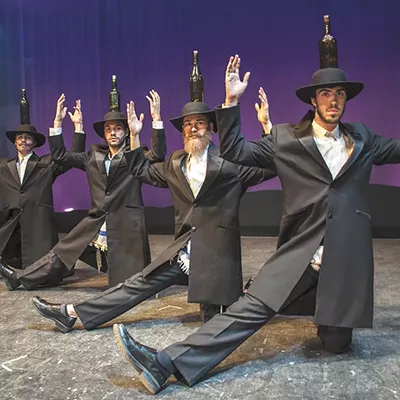In trying times, the arts are among the first to lose funding. After the recession hit in 2008, professional classical arts companies around the country folded. Teachers closed studio doors. When the preeminent New York City Opera filed Chapter 11 last year, many saw it as a sign of the continued demise of opera and support for the classical arts in this country. In Spokane and Coeur d'Alene, however, the classical arts are holding strong, despite challenges.
Most young people will never become professional musicians or dancers, yet kids continue to study classical arts. The Inland Northwest boasts a professional opera and symphony. Ballet companies perform here annually. It's not perfect, but the scene is far from dead.
Here's a look at what's going on in the regional spheres of classical ballet, music and opera.
BALLET
As students in leotards begin to stretch out their muscles at the barre, warm yet rhythmic melodies float through the room. A live pianist still accompanies most of Shari Davis' ballet classes, a tradition she was raised on. At the Dance Center of Spokane, her South Hill dance studio, classes are resuming for the fall season. Excited energy fills the air. Right before the recession hit, Davis expanded her studio's space.
"It hasn't always been easy. Some families are struggling to pay," she explains. "But we're making it."
A 30-year veteran of teaching ballet in Spokane, she says she doesn't understand why Spokane can't support a professional ballet company. "There is no reason that a mid-sized city like ours shouldn't be able to do so," says Davis, whose own school offers a nonprofit, pre-professional dance company.
It's not that it hasn't been tried. In the late '80s and early '90s there was Spokane Ballet and the Ballet Company of Spokane. In the aughts there was Ballet Spokane. But financially, nothing could stick.
The area boasts dozens of dance schools. Davis says she's seen a greater interest in the art form, especially over the past 10 years, thanks to shows like So You Think You Can Dance and Dance Moms. If the recession recedes and the economy fully recovers, Davis is sure there will be a resurgence for dance of all kinds.
"Parents understand how important the arts are," Davis says. "Ballet offers such a positive outlet for exercise and expression."
OPERA
For its 15th season, Opera Coeur d'Alene put on its largest production ever with last weekend's Girl of the Golden West, a lesser-known Puccini work set during the California gold rush but sung in Italian.
"The show is a monster. There's a lot of bleeding and sweating and screaming on stage," says company artistic and general director Aaron Nicholson during rehearsals. "It's like trying to lead an expedition."
The principal performers are out-of-towners, but the chorus, minor roles and orchestra are all regional. Opera Coeur d'Alene has one of the smallest budgets in the country, Nicholson says, and its most fully realized production ever, including ornate sets and costumes, has been made possible thanks to generous donation.
"Financially, this is the biggest season yet," says Nicholson, the company's director for more than a year.
After Spokane Opera went on hiatus in 2010, Opera Coeur d'Alene has continued to prosper and branch out into new avenues, including various elementary school performances and July's production of The Pirates of Penzance staged on a Lake Coeur d'Alene cruise ship.
"Opera is changing. It's not just producing million-dollar museum pieces," Nicholson says. "Staging is becoming more boutique. We have to get inventive with our performances."
"Opera, give it a shot" — this most recent show's tagline — explains it all.
"I'm not as concerned with getting young people flocking to the opera, necessarily," Nicholson admits. "What I am concerned about is moving people's perception of opera being somehow unnecessary."
ORCHESTRA
Violinist Philip Baldwin is convinced classical music just has a marketing problem.
"Five-year-olds love Stravinsky," says Baldwin of the Russian composer. "Classical music isn't scary to them. I think it's the adults that tell kids that classical music is hard to understand or esoteric."
Director of the Whitworth University Orchestra and Spokane Youth Symphony and concertmaster and assistant conductor for the Coeur d'Alene Symphony Orchestra, Baldwin keeps very busy. After nearly a decade in the region, Baldwin says the classical music scene is as stable as ever, thanks in part to orchestras in the public schools: "Youth keeps renewing it, whether people believe it or not." He says the real problem with classical music is that it's not necessarily that cool.
"How we change that has always been the issue," Baldwin admits.
There is more opportunity to take in a classical music concert than any other classical art in the area. While the Spokane Symphony has seen success with its lineup of SuperPops concerts and its free Labor Day Weekend performance at Comstock Park, not nearly enough people take advantage of the art at their fingertips.
"Classical music goes well beyond class and bank accounts," Baldwin says. "You don't have to be educated. Just let yourself be transformed." ♦























